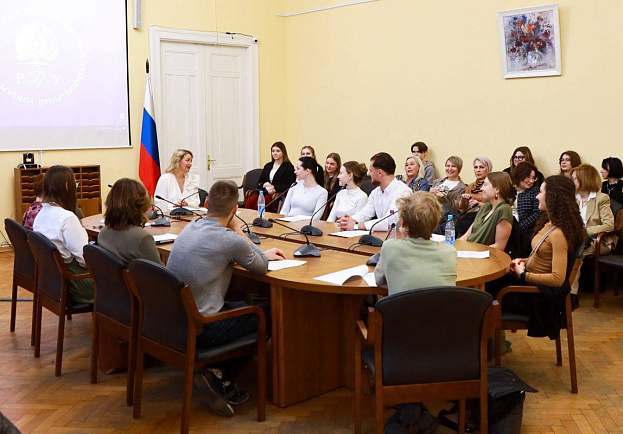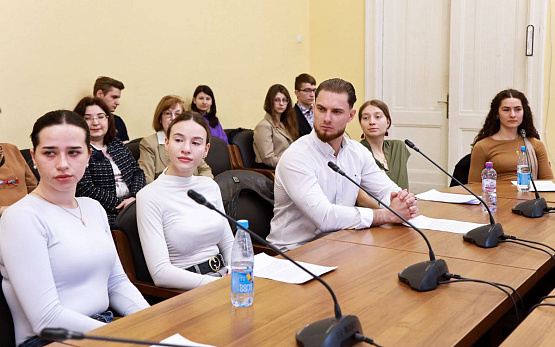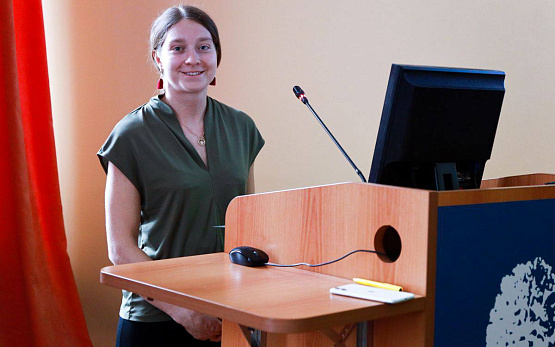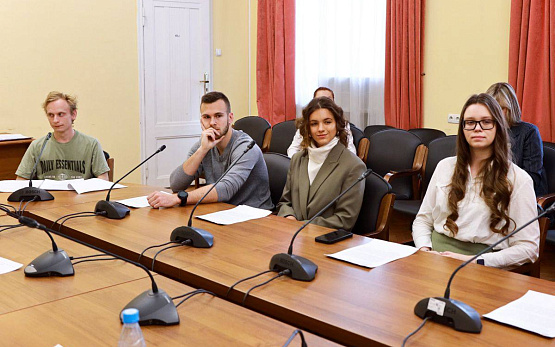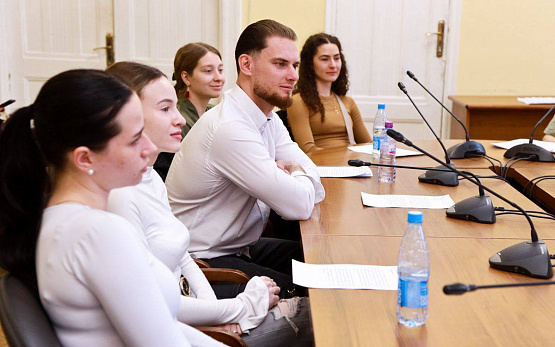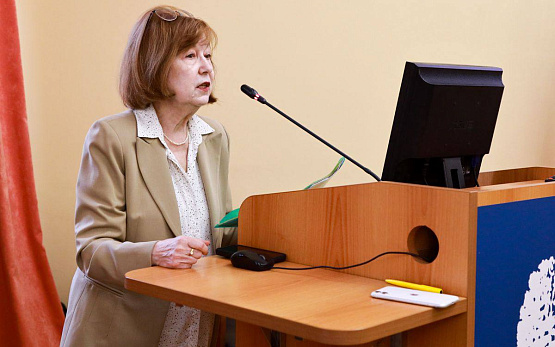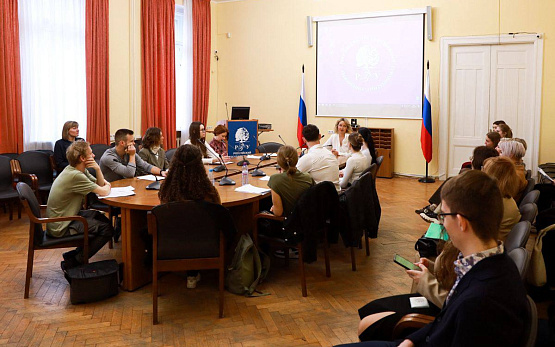Austrian students studying the Russian language and culture visited the Russian State University for the Humanities (RSUH) and engaged in discussions with RSUH students on the specifics of the educational systems in Russia and Austria. They shared both the challenges and advantages of language learning, as well as personal stories that convinced them of the importance of strengthening interstate dialogue through student exchanges and the reciprocal study of Russian and Austrian languages and cultures.
The discussion, conducted entirely in Russian without translation into German, took place as part of the roundtable “Russia–Austria: A View from the Young Generation. Bridges of Mutual Understanding and New Perspectives.” The Austrian delegation included participants of the “Austrian Holidays” program, while the Russian side was represented by students and graduates of RSUH’s academic program “Russia–Austria: History, Politics, Economy, Culture.”
With a welcoming address to the participants, Olga Pavlenko, Vice-Rector for Research and Project Activities at RSUH, stated:
"We are very pleased, dear Austrian guests, that you are studying the Russian language and literature, and we are equally pleased that RSUH students are studying the history of Austria and Germany. The Russian language is an entire world. The poet Marina Tsvetaeva once said: the more foreign languages a person knows, the more souls they have. Through the Russian language, one can understand Russia, its literature, and the life of the Russian people, as well as the spiritual and moral values of our country — the largest in the world, with a complex and at times tragic historical fate."
Olga Pavlenko also noted that RSUH offers foreign students a wide range of interesting programs for studying the Russian language and culture, available both online and full-time.
The meeting was organized by the Russian-Austrian Public Forum Sochi Dialogue. Maria Matveeva, Director of the Forum and Advisor to the Rector of RSUH, shared the history of the platform’s creation and outlined its main areas of activity:
"Sochi Dialogue is the youngest among the family of bilateral public dialogues. Similar dialogues exist with France and Germany, but they are currently suspended. Within the framework of the Russian-Austrian dialogue, we invite participants not only from Austria but also from other European countries and organize academic and educational programs. We place particular emphasis on promoting the Russian language and culture."
Maria Matveeva also highlighted the cyber tournament program in interactive sports, which has been operating successfully for six years and currently includes 73 participants from Austria.
Valentina Trufanova, Director of the International Research and Educational Center for the Russian Language at RSUH, spoke in detail about the wide geographic diversity of countries from which students currently enroll at the university, as well as about intercultural dialogue in the context of foreign language education. She also expressed her gratitude to the Austrian students who continue to study the Russian language and culture during these challenging times.
Elena Guryanova, Senior Lecturer at the Department of Foreign Languages of the Institute of International Relations and Political Science, in her presentation on opportunities for international students in Russia, placed particular emphasis on the cultural and linguistic adaptation process and on the support provided by RSUH to its international students.
Natalia Pakhomova, Deputy Director of the Department of International Cooperation at RSUH, shared information about the activities of the university’s Association of International Students, the mentorship program, and the vibrant student life at the university.
Participants from Austria also gave presentations, speaking about Austrian student organizations and about studying the Russian language, including the works of Fyodor Dostoevsky.
Student Julia Gruber shared a touching story of how she met a Russian girl, and this acquaintance unexpectedly became the beginning of a strong friendship between their grandmothers, who had lived through the hardships and losses of wartime on opposite sides of the conflict. This friendship helped to dispel longstanding negative stereotypes and prejudices about the peoples of Austria and Russia, fostering truly sincere and warm relations despite the language barrier.
At the conclusion of the meeting, the participants agreed on the need to establish a Russian-Austrian Youth Club under the auspices of the Sochi Dialogue, with the primary aim of fostering mutual understanding and expanding bilateral contacts among young people and students.
The visit of Austrian students to RSUH was part of the broader Russian-Austrian events held at the university. On April 15, RSUH hosted a bilateral roundtable dedicated to the 70th anniversary of the signing of the Moscow Memorandum — a key document for Austria that paved the way for the country’s independence.
